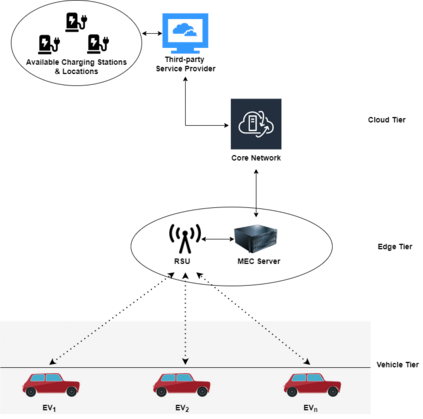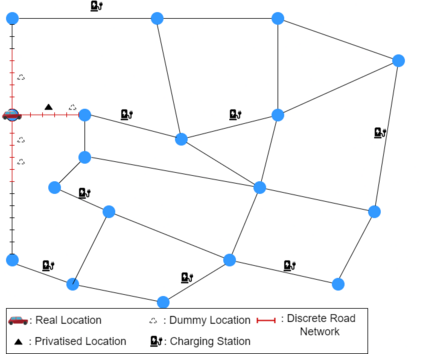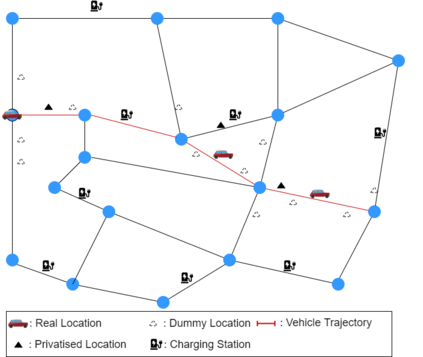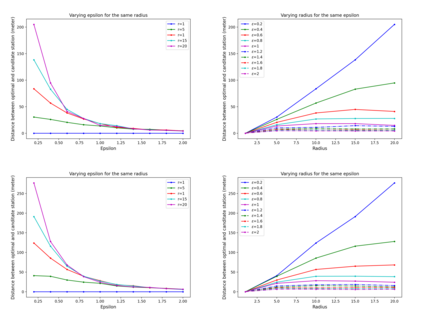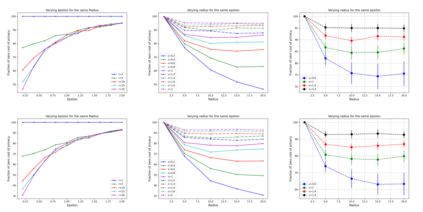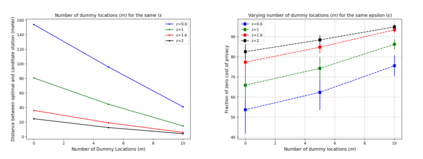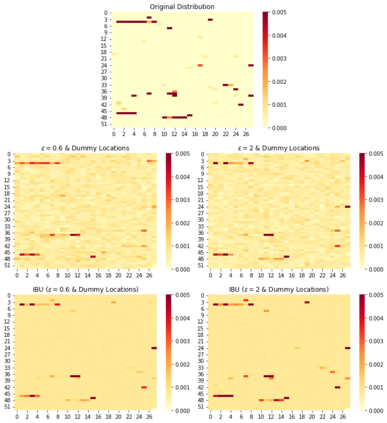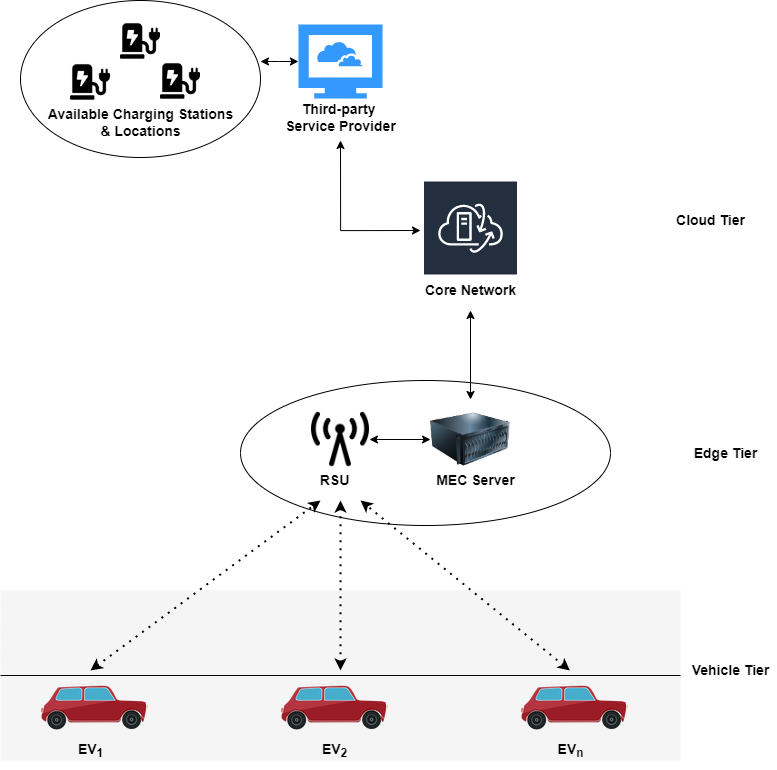Electric vehicles (EVs) are gaining popularity due to the growing awareness for a sustainable future. However, since there are disproportionately fewer charging stations than EVs, range anxiety plays a major role in the rise in the number of queries made along the journeys to find an available charging station. On the other hand, the use of personal data in various types of analytics is increasing at an unprecedented rate. Hence, the risks of privacy violation are also surging. Geo-indistinguishability is one of the standards for formalising location privacy as a generalisation of the local differential privacy. However, the noise has to be carefully calibrated considering the implications of potential utility-loss. In this paper, we introduce approximate geo-indistinguishability (AGeoI) which allows the EVs to obfuscate the individual query-locations while ensuring that they remain within their preferred area of interest. It is vital because journeys are often sensitive to a sharp drop in QoS, which has a high cost for the extra distance to be covered. We apply AGeoI and dummy data generation to protect the privacy of EVs during their journeys and preserve the QoS. Analytical insights and experiments are used to demonstrate that a very high percentage of EVs get privacy for free and that the utility-loss caused by the privacy-gain is minuscule. Using the iterative Bayesian update, our method allows for a private and highly accurate prediction of charging station occupancy without disclosing query locations and vehicle trajectories, which is vital in unprecedented traffic congestion scenarios and efficient route-planning.
翻译:电动车辆(EVs)由于对可持续未来的认识日益提高而越来越受欢迎。然而,由于电动车辆比EVs少得不成比例地少,因此在旅途中为寻找可用的电动车站而提出的询问数量增加方面,范围焦虑起着主要作用。另一方面,各种类型分析中个人数据的使用正在以前所未有的速度增加。因此,侵犯隐私的风险也在急剧上升。地理分化是将地点隐私正式化的标准之一,这是对地方差异隐私的概括性。然而,噪音必须仔细校准,以考虑潜在的电动损失的影响。在本文件中,我们采用了近乎地不易分化的查询数量(AGeoI),使个人查询地点难以混淆。因此,侵犯隐私的风险也正在急剧上升。因为旅行往往对QOS的急剧下降十分敏感,因此需要覆盖超远的距离。我们应用AGeoI和假数据生成来保护准确的电路损失的隐私,而没有考虑到高效的电路损失。在旅途中,使用高频路路路路路路路路路段的精确度和路面的精确度,使得人们能够对路面进行高路面分析。

